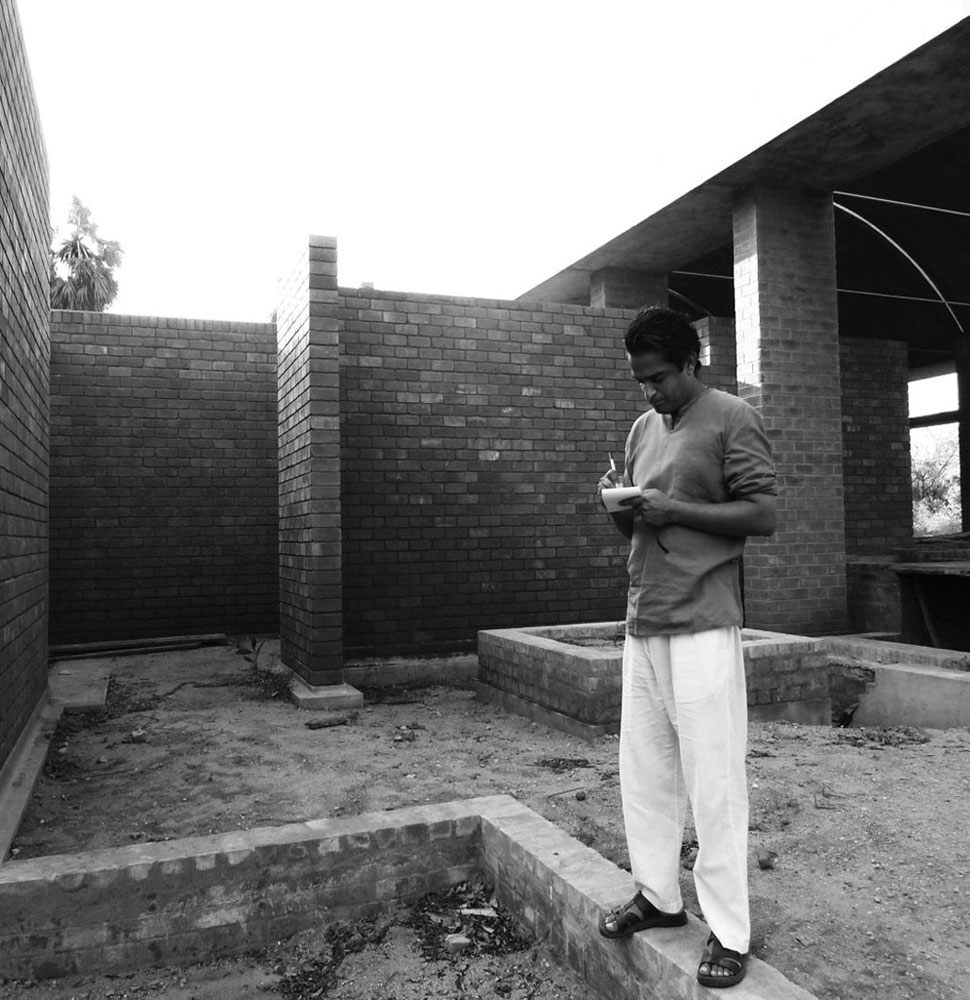
PROFILE
Jateen Lad BA DipArch(Cantab) SMArchS(MIT) ARB RIBA is an award-winning architect based in Manchester with over 20 years UK and international experience. His work is guided by a belief that good thoughtful design and ethical construction practices can be a force for social change.
He set up in the aftermath of the 2004 Indian Ocean tsunami dedicated to working on sustainable community development projects and is recognised for his recent Sharanam buildings for the Sri Aurobindo Society in Pondicherry, India. Current projects are located locally in Manchester and internationally in Ireland, Germany and across India.
He brings a holistic approach integrating bespoke architecture, master-planning, environmental design, construction management and the delivery of buildings in a socially empowering manner - often in challenging contexts with limited resources. His experience in closely collaborating with private clients, non-profit organisations, NGOs, schools, funding agencies and community groups enables projects to transcend expectations and generate long-term benefits.
All projects are shaped by a commitment to environmental sustainability and the creation of social value. Working at the grass roots Jateen Lad's projects encourage community involvement and the training of local workers, upgrading long term skills and improving livelihoods.
Jateen studied at the University of Cambridge, MIT, Harvard and the Architectural Association and is regularly invited by major institutions and universities to speak about sustainability, alternative practice and the social value of architects. He is a chartered member of the Royal Institute of British Architects, a UN-Habitat consultant and in 2013 was appointed Technical Reviewer for the prestigious Aga Khan Award for Architecture.

SELECTED PRESS & TALKS
Jateen Lad is regularly invited to speak at a number of institutes and his work has been featured in numerous international design magazines and newspapers. A selection of talks and published articles is listed below.
Architecture from the Ground Up | Flora Samuel + Eli Hatleskog (eds.) | AD Architectural Design: Social Value in Architecture (Oxford) | July/August, 2020
Make Design Matter | Lecture by Jateen Lad | White Collar Factory, 1 Old St. Yard, London | October, 2018
The Social Value of Design | Presentation by Jateen Lad | RIBA Smart Practice Conference 2018, Cambridge | October 2018
Cover | Indian Architect & Builder (Mumbai) | May, 2017
A Humble Locale | Indian Architect & Builder (Mumbai) | May, 2017
Cover | XXI Architecture and Design Magazine (Istanbul) | February, 2017
Öteki Kalınmanın Mimarlıgı | Deniz Cinar | XXI Architecture and Design Magazine (Istanbul) | February, 2017
What you can build for £25,000 | A Lecture by Jateen Lad | McGill University, Montreal | November, 2016
Alternative Materials, Techniques + Practice | A Lecture by Jateen Lad | Centre for Alternative Technology, Wales | October, 2016
Building Social Sustainability | A Talk by Jateen Lad | University of Huddersfield | September, 2016
Feature Project: Sharanam, A Centre for Rural Development | Ciara Chang (ed.) | FuturArc. The Voice of Green Architecture in Asia-Pacific (Singapore) | September - October, 2016
Commentary. We are all Living in a Material World | Miriel Ko | FuturArc. The Voice of Green Architecture in Asia-Pacific (Singapore) | September - October, 2016
Building Case Study: Sharanam Centre for Rural Development | Hattie Hartmann (ed.) | The Architects Journal (London) | 26 February, 2016
Addressing Environmental Concerns. An Interview with Jateen Lad | Ajit Sabnis (ed.) | Built Expressions (Bangalore) | February, 2014
Royal Society Lignacite Lecture | Professor Doug King | Royal Society, London | September, 2013 | Featuring the work of Jateen Lad
Global Designers Give Pondy a Sense of Style | Nandini Sengupta | The Times of India | (Chennai) | November, 2011.
Alternative Practice | A Presentation by Jateen Lad | Manchester School of Architecture | July, 2011
The State of Play of Sustainable Buildings in India | United Nations Environment Programme Report in conjunction with The Energy Research Institute | November, 2010
